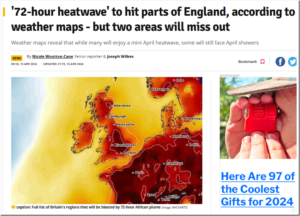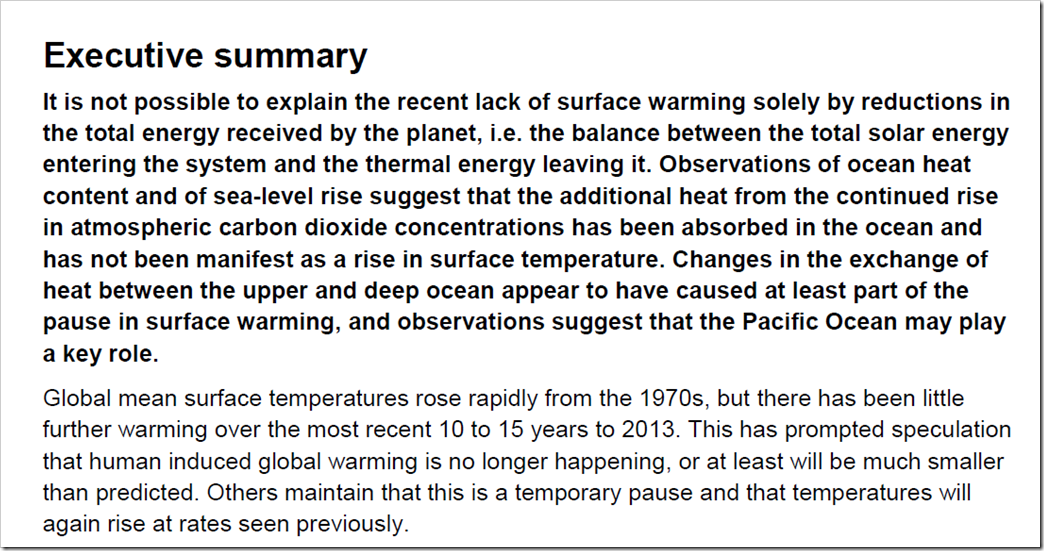by P. Homewood, Apr 14, 2024 in NotaLotOfPeopleKnowThat
I hope you did not blink, otherwise you may have missed it!

Brits are set to bask in a ’72 hour’ heatwave, according to some forecasters, but not everyone will be feeling the heat as two parts of England are expected to miss out on the sizzling temperatures.
Weather maps reveal that while many will enjoy a mini April heatwave, some will still face April showers. According to WX Charts, which uses Met Desk data for its predictions, temperatures could soar to a balmy 21C at times this month.
The charts indicate that Londoners can expect to enjoy highs of 20C from today until Saturday, with East Anglia and the East Midlands not far behind at 19C. Cities like Birmingham, Nottingham, Manchester, and Sheffield are also set to experience a warm 18C.
https://www.manchestereveningnews.co.uk/news/uk-news/72-hour-heatwave-hit-parts-28989573
Sure enough temperatures reached 21C in Essex, but I don’t know anyone who would actually describe this as a heatwave:
…

